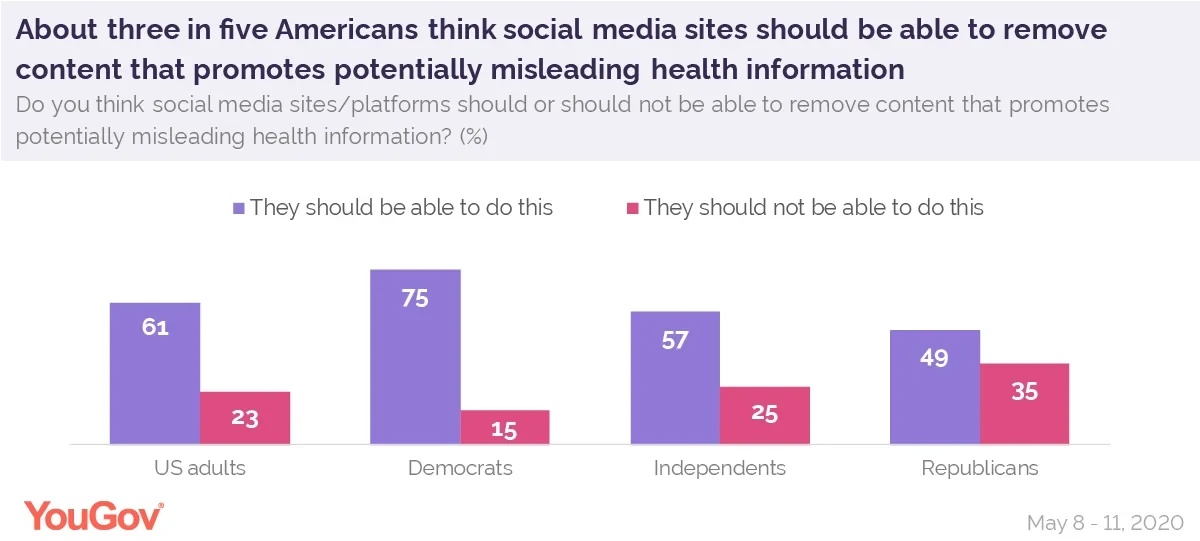In May, a video called “Plandemic” began circulating widely on social media. The video features false claims that wealthy people intentionally spread the COVID-19 virus in order to increase vaccination rates, that wearing face masks is harmful, and that doctors have intentionally misled the public about COVID-19.
Several social media platforms including YouTube, Facebook, and Vimeo removed the video from their platforms on the grounds that they did not want to allow content that spreads misinformation about public health. But do Americans think social media giants should be allowed to make these calls?
Data from YouGov finds that most (61%) Americans believe social media companies should be able to remove content that contains potentially misleading health information. About one-quarter of US adults say that social media platforms should not be able to do this.
There are some partisan divides around this topic. Three-quarters of Democrats (75%) believe social media companies should be able to do this, while fewer Independents (57%) and Republicans (49%) share the same view.

If you believed the untrue claims made in the “Plandemic” video, you’re probably not alone. Many Americans have been fooled by misinformation online. Additional YouGov data finds that 38 percent of US adults agreed with the statement, “I admit it, I sometimes think fake news is real, only to find out later it was incorrect.”
See full results here and sign up for the YouGov Daily newsletter.
Related:
- Did a Chinese lab make the virus? Nearly half of Americans think so
- See how COVID-19 is affecting the US
- Will more politicians contract COVID-19? Americans think so.
Image: Getty










